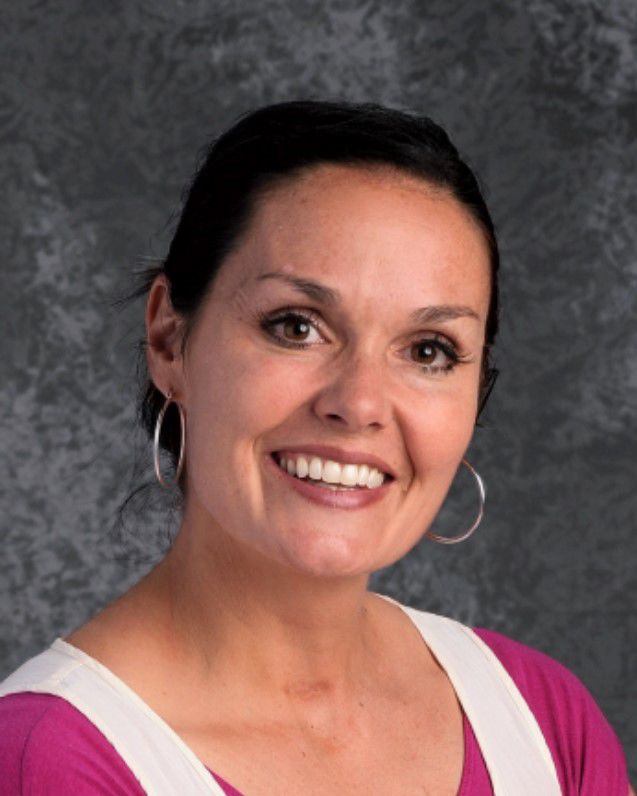A recent study conducted by the Conference on Jewish Material Claims Against Germany, reports that two-thirds of American millennials cannot identify what Auschwitz was and 49 percent cannot identify a ghetto or concentration camp.
Local Teacher to Bring Lessons of the Holocaust to New School Year.
Emery High Teacher Completes In-Depth Holocaust History Training from the U.S. Holocaust Memorial Museum’s 2018 Belfer National Conference for Educators.
One of 226 teachers nationwide selected to attend professional development conference, bring new approaches to Holocaust education back to school.
Courtnee Justice, a teacher at Emery High School in Castle Dale, is bringing back lessons designed to engage and promote students’ understanding of Holocaust history from a Holocaust education conference this summer at the United States Holocaust Memorial Museum.
Justice was one of 226 participants from all over the country who attended the Museum’s annual Arthur and Rochelle Belfer National Conference for Educators, a three-day workshop for teachers hosted by the Museum from July 23 to 25 and from July 26 to 28.
Justice said, “Every summer teachers continue their training in various venues. I chose to attend the Belfer Holocaust workshop in Washington D.C. I looked forward to it, with hope and with deep anticipation.
“My hope was to strengthen my understanding of the Holocaust, especially since I recently had begun teaching Night by Elie Wiesel to my ninth grade students.
“I have always had great respect and a fascination for the study of the Holocaust. Teaching it, however, is a different scenario. To teach it properly, I wanted to convey a level of respect, as well as reverence, in addition to teach the why?
“One has to ask why? Why do we allow genocide? Why do we allow people to be segregated and mistreated?
“In the workshop we discussed the why? The how? The responsibility? In doing this we went into the museum before it was opened to the public, we were given themes to look for, specific stories, and media to read. Then we would go back to our classrooms and discuss this, in a classroom setting. We would create lesson plans as well. Every day we had conferences in meeting halls, some were guest speakers, others were curators from the Holocaust exhibits.
“One truly special visitor was a Holocaust survivor. She spoke of the circumstances and the treacherous experiences she had to endure to save her life and her mother’s life. It was very moving, tears flowed freely.
“Needless to say, the entire experience was fantastic. It was overwhelming, it was one to not be forgotten. It allowed myself to become a witness on a whole new level.
“Essentially, that is what we desire within the classroom when teaching the Holocaust, is to have the students witness this time in history, take the knowledge to go forth and share with reverence, therefore, never allowing this atrocity to happen again on our planet.
“I am very grateful to have had this opportunity. It is one that I will not forget. I most certainly will share the knowledge and experience with my students,” said Justice.
The 2018 conference is a vital part of the Museum’s ongoing effort to equip educators throughout the country with the knowledge and skills to effectively bring Holocaust education into their classrooms.
“Educating students about the history of the Holocaust provides an opportunity for young people to think critically not only about the past but also about their roles in society today,” says Gretchen Skidmore, director of education initiatives for the Museum’s William Levine Family Institute for Holocaust Education. “As the global leader in Holocaust education, the U.S. Holocaust Memorial Museum works to ensure teachers have the training and resources they need to introduce their students to this important and complex history — and show them how its lessons remain relevant to all citizens today.”
Every year, the Museum trains hundreds of teachers through training programs held in Washington and around the country. The institution provides these teachers with advanced tools and teaching materials for students of history, English, social studies, language arts, library science, journalism and more.
At the Belfer conference, the participants teamed up with Museum educators and scholars in sharing rationales, strategies and approaches for teaching about the Holocaust. They also explored the Museum’s latest exhibition, Americans and the Holocaust, which examines American society in the 1930s and ’40s and the factors that shaped Americans’ responses to Nazism. Program participants also heard from Margit Meissner and Susan Warsinger, two Holocaust survivors who volunteer at the Museum.
The Museum’s website, www.ushmm.org, provides resources at no cost to educators, including a range of online training modules, exemplary lesson plans and extensive historical information about the Holocaust.
For more information about the conference or to arrange an interview with this year’s participants or organizers, please contact Raymund Flandez at 202.314.1772 or rflandez@ushmm.org.
Established in 1993, the Arthur and Rochelle Belfer National Conference for Educators brings hundreds of middle, high school and community college teachers to Washington, D.C., each summer to train them in effectively teaching the Holocaust to their students. The Museum gives participants a chance to interact with its scholars and educators to reinforce their understanding of Holocaust history and to engage in successful strategies in bringing the lessons of the Holocaust to their classrooms. The conference is funded in part by the Arthur and Rochelle Belfer Foundation.
A living memorial to the Holocaust, the United States Holocaust Memorial Museum inspires citizens and leaders worldwide to confront hatred, prevent genocide, and promote human dignity. Its far-reaching educational programs and global impact are made possible by generous donors. For more information, visit www.ushmm.org.
Emery County teacher attends Holocaust conference

Courtnee Justice.
